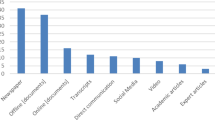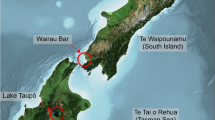Abstract
In contrast to structuralists, who sought to achieve a fixed and static framework of meanings by referring concepts and content of knowledge to dominant structures and discourses, denying structures and meanings, post-structuralists abandoned the content of knowledge from any constraint and involved it in fluidity and ambiguities, and denied any pre-designed semantic structure. According to the post-structuralism view, there is no fixed semantic framework and no reliable foundation for knowledge, and everything is in the process of continuous decay and disintegration and every meaning is exposed to a continuous process of semantic dialectics in the dual oppositions between different and conflicting interpretations, and experiences changes, and this process continues and there is no end for it. In the field of geography, meanings are produced in the process of communication between spaces, and there are no independent meanings and identities for geographical space and place alone. According to the authors of this article, post-structuralism, despite the great noise, is a non-scientific and non-epistemic viewpoint, and before having an epistemic nature, it is considered as a political and social movement and approach. A look at the fundamentals and assumptions of this school suggests that this view has conceptual and epistemic contradictions. Relying on the claims of this school, the possibility of any scientific research, and the ability to communicate between geographic spaces and to reach the fields of interaction and dialogue between individuals, groups and spaces are lost. Therefore, the article authors' opinion is that, basically and logically, post-structuralism is something impossible, unreasonable, dimensionless, and a meaningless term.
Similar content being viewed by others
Notes
Regarding the views of Professor Massey and Prof. David Harvey and Prof. Thrift it should be noted that we have focused on the epistemological foundations of these schools and their views, and have reviewed and critiqued the points from this point of view not their political and social positions and views. Therefore, although we do not agree with some of their epistemological foundations, we agree with their humanitarian, justice-seeking and reformist views in the political and social spheres.
References
Alexander, H. J. (2002). Leibniz and Clarke Schools. Iran: Bustan Ketab Publication (trans: Ali Arshad Riahi, Ghom)
Copleston, F. (2012). AHistoryofPhilosophy (vol. 1). Tehran: Elmi va Farhanghi Publicaion (trans: Jalal-al-Din Minavi).
Copleston, F. (2014). AHistoryofNew Philosophy (vol. 6). Tehran: Elmi va Farhanghi Publication (trans: Ismael Sa’adat and Manuchehr Bozorgmehr).
Gregory, D., et al. (2009). The Dictionary of Human Geography (5th ed.). Oxford: Blackwell Publishing.
Gregory, D. (1994). Geographical Imaginations. Oxford: Blackwell.
Harvey, D. (1996). Justice, Nature and the Geography of Difference. Oxford: Blackwell.
Kamelan, M., & Yazdanifar, S. (2013). Implication of words on meanings from views of the views of theologians and linguist. Islamic Studies Quarterly. Jurisprudence and Principle, 45(95), 125–149.
Losee, J. (2010). A Historical Introduction to the Philosophy of Science, translated by Ali Paya. Tehran: Samt Publication.
Malekshahi, M. (2015). What is Translation?Motarjem Quarterly, 24(56), 23.34.
Massey, D. (1991). A Global Sense of Place. Marxism Today, pp 24–9.
Massey, D. (1992). Politics and space/time. New Left Review, 196, 65–84.
Massey, D. (1998). Power-geometries and the politics of space-time. Hettner-Lecture: Department of Geography, University of Heidelberg, Heidelberg.
Massey, D. (1999). Space of politics. In D. Massey, J. Allen, & P. Sarre (Eds.), Human Geography Today (pp. 279–294). Cambridge: Polity Press.
Massey, D. (2005). For Space. London: Sage Publications.
Mesbah Yazdi, M. (2012). Philosophy of Ethics. Tehran: International Publication.
Mosleh, A., & Khanghah, P. (2011). Deconstruction as a Strategy. Metaphysic Quarterly, Faculty of Literature and Humanities University of Isfahan, 3(11–12), 59–72.
Murdoch, J. (2013). Poststructuralist Geography: A guide to relational Space, translated by Zahra Pishghami fard and Mosayeb Gharehbeygi. Tehran: Zeytun Sabz Publication.
Newman, S. (2010). What is Post-structuralism? translated by Mostafa Ensafi, Hamshahri Online Newspaper, 2010/9/10, accessible onhttps://hamshahrionline.ir/details/115848.
Nojumian, A. (2006). Concept of Otherness in view of Jacques Derrida, The 4th Conference in Comparative Literature, University of Tehran, accessible on https://www.civilica.com/Paper-ADABIATTAT04-ADABIATTAT04_015.html.
Sadeghi, R. (2010). Realism and its Criteria. Philosophy of Religion Quarterly, 7(6), 187–214.
Soroush, A. (1978). Criticism and Introduction on Dialectic Paradox. Tehran: Hekmat Publication.
Thrift, N. (1996). Spatial Formations. London: Sage Publications.
Thrift, N. (1999). Steps to an ecology of place. In D. Massey, J. Allen, & P. Sarre (Eds.), Human Geography Today (pp. 295–322). Cambridge: Polity Press.
Thrift, N. (2004a). Summoning life. In P. Cloke, P. Crang, & M. Goodwin (Eds.), Envisioning Human Geographies (pp. 81–103). London: Arnold.
Thrift, N. (2004b). Intensities of feeling: toward a spatial politics of affect. Geografiska Annaler, 86(1), 57–78.
Author information
Authors and Affiliations
Corresponding author
Ethics declarations
Conflict of interest
We have no conflicts of interest to disclose.
Additional information
Publisher's Note
Springer Nature remains neutral with regard to jurisdictional claims in published maps and institutional affiliations.
Rights and permissions
About this article
Cite this article
Vasegh, M., Mohammadi, A. & Heshmati, J. The criticism of bases and claims of post-structural geography. GeoJournal 87, 1069–1084 (2022). https://doi.org/10.1007/s10708-020-10301-5
Accepted:
Published:
Issue Date:
DOI: https://doi.org/10.1007/s10708-020-10301-5




